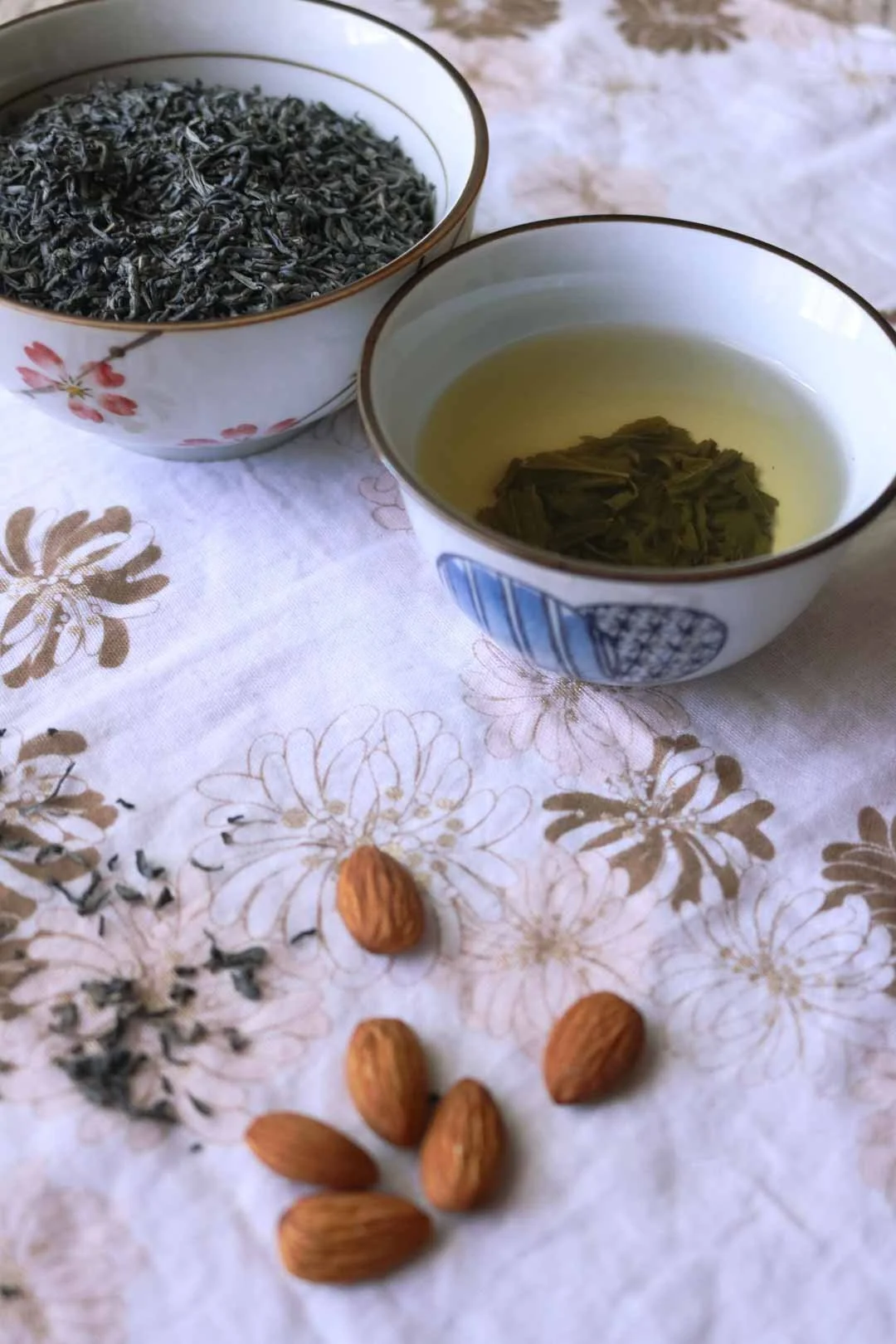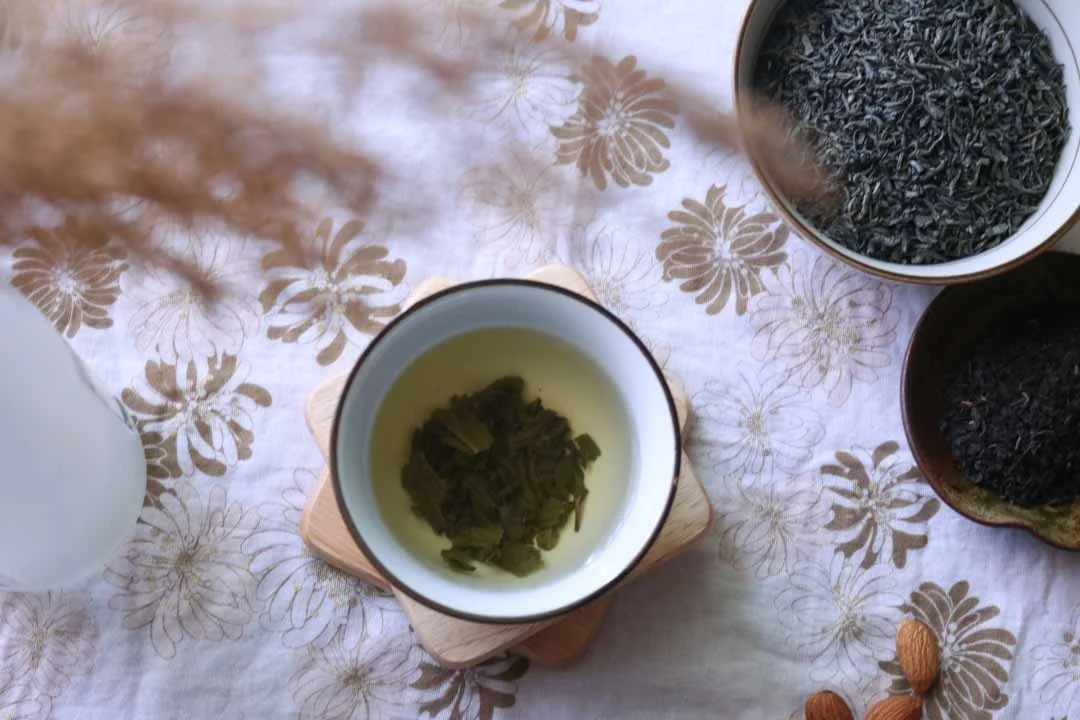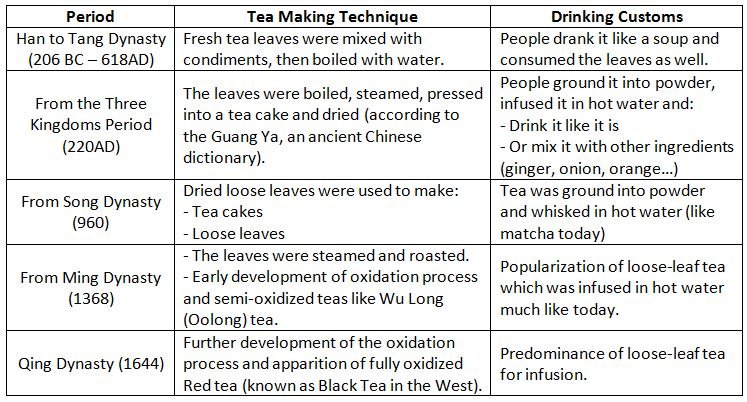Which Country Invented Tea?
Nowadays it’s pretty easy to find tea. But it was not always the case. There was a time when tea drinking culture was present in one place only.
But which country invented tea? The answer is undoubtedly China.
Let me tell you the fascinating story of the first teas. Chinese teas. How the Chinese turned simple leaves into a delicious brew… And a priceless product coveted by the entire Western world.
What are Tea’s Native Regions?
The tea plant is thought to be indigenous to the area found between:
China's Yunnan and Sichuan Provinces in the East
And the Nagaland and Manipur hills along the Assam-Myanmar border in the West
There are 2 main types of tea plants or the Camellia Sinensis variety:
Sinensis: Native southern China
Assamica: Native to the Assam region of India
The Origin of Tea
There are several Chinese legends about the invention of tea. The most popular one attributes the invention of tea to Shennong (around 2700BC) – An Emperor who is said to have taught the Chinese people agriculture.
According to the legend, Shennong was boiling water. Then some leaves from a nearby tea plant drifted into his pot. Intrigued by the aroma, Shennong tasted the drink and found it invigorating.
Extra Info: Tea contains several compounds like caffeine (a stimulant) and L-theanine which has a calming effect. It is said tea was the favorite beverage of monks because it would help them stay alert during meditation.
While this is a common myth, it’s worth pointing out that back in 2700BC there was no empire, thus no emperors. (In fact, the Chinese term for Emperor came around Huangdi (皇帝) was given to the first emperor as a new title, that no one before had possessed.)
Physical evidence of Tea
As for physical evidence – the oldest tea leaves ever found date back to 453BC-410BC. Remains were discovered in a royal tomb in Shandong Province in 2018. It’s clear tea has been consumed in China for a long time…
In fact, ¨China is the first country in the world to discover and cultivate tea¨.
That is according to Professor Shuya Wei (of the Institute of Cultural Heritage and History of Science & Technology in Beijing) in her report about the old tea found in Shandong.
3 Facts that Make China the Undeniable Cradle of Tea
China plays a central role in the history of tea. Not only did the Chinese develop tea growing and processing methods – But they were also responsible for the propagation of tea around the world.
Or in some instances, had their tea stolen and thus propagated around the world. You can read about the world’s greatest heist via botanist Robert Fortune in our History of Tea article here.
1 - The Development of Tea Technology
Tea was not always this pleasant drink we know today? At first, the tea leaves were chewed. Then people started boiling fresh leaves with water to make a medicinal beverage. It is believed the tea-drinking culture started during the early Han Dynasty.
The people of Sichuan began to share their knowledge about tea growing and processing with other parts of the country. And the Chinese went on to develop various tea-drinking methods throughout the centuries:
Extra info: Historically, tea was compressed into a cake-like shape to facilitate conservation, storage, and transportation. Tea cakes were usually made from green tea, but nowadays they can be made from different teas.
2 - The Spread of Tea Across the World
Chinese merchants and traveling Buddhist monks were the first to spread tea across Asia:
To East Asia (Korea, Japan)
To Tibet and Burma via the Tea Horse Road
To Central Asia and the Middle-East via the Silk Road
To the North in Mongolia and even Russia
Tea trading with the West only started in the 17th century. It became quite popular, especially in Britain. But it was also very pricey, and soon the British started to:
Trade tea in exchange for a cheaper product (opium) instead of silver
Look for a way to steal China’s monopole of tea (meaning spying on the Chinese to learn how they grew and processed tea)
To know the full story of how the British became the biggest drug dealers in history, check out our article about the History of Tea.
3 - The Word ¨Tea¨
The word ¨tea¨ itself is proof of its Chinese origin. No matter the language, the word tea will always sound something like ¨Cha¨ or ¨Te¨
That is because when tea started spreading outside of China – The Chinese character ¨茶 ¨ (tea) had different pronunciations:
¨Cha¨ in Cantonese and Mandarin (majority of the country)
¨Te¨ in the Fujian Province (South-east China)
That’s why most countries which were supplied through the Silk Road used ¨cha¨. But the Dutch were trading tea by ship via the coastal Province of Fujian. So most European countries use the ¨te¨ pronunciation borrowed from the Dutch.
Have a Cup of Tea With Us
Now that you know which country invented tea, how it was developed through time, and how it arrived from China to your home… I invite you to learn more about authentic Chinese teas which are still little-known in western countries.












